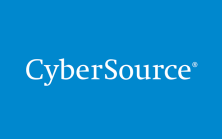Are You Teaching Your Employees to Steal?

By Peter Goldmann, President, FraudAware Hospitality
"Ethics" means doing the right thing every day - even when no one is watching. So you think you're ethical? If you own the company, do you run personal expenses through the company? If you're an executive, do you turn in padded expense reports?
If you do, these thefts will inevitably become common knowledge among all of your employees. And employees take their cues about what's acceptable behavior, and what's not, from those above them.
According to Gary Zeune, CPA, a prominent anti-fraud trainer, "very few companies actually live by an executive-led standard of behavior that infuses the organization with a culture of integrity." Zeune further explains that, "unfortunately, many organizations assume they can rely on employees' 'common sense' about what is fair and ethical business behavior. Or - worse - they tolerate an 'everybody does it' attitude among employees."
"It" of courses refers to such common acts as padding expense report ... skimming a few dollars from a restaurant or gift shop register... comping rooms or services in exchange for bribes or kickbacks... disbursing checks to phony food or beverage vendors, etc.
Zeune's important lesson to all is that leaving it up to each employee to decide what's right or wrong in performing his or her job promotes an environment of self-interest in which fraud is almost certain to flourish.
"LEADING" BY UNETHICAL EXAMPLE
Ex-convicts who served prison time for committing fraud will tell you that the crimes they committed weren't worth even a single day in prison. It's that bad. The problem is, according to Zeune, that once you've committed a fraud and been sentenced to prison, it's too late to "mend your ways". In other words, now is the time, if you're a senior hotel or corporate manager to be setting an example of ethical conduct.
Problem: Too often, hotel company executives get to the point where they think the rules don't apply to them. Or - they run their companies as if their employees are dispensable and accordingly, treat their people with indifference or, worse, outright disrespect.
It's not long before employees follow the boss's lead, and soon many are embezzling or otherwise defrauding their employers, "justifying" their behavior by saying "If it's OK for the CEO to do it...", or "If the company is going to treat me that way..."
According to forensic psychologist, Janet M. Schwartz, PhD, this too often involves formerly honest employees becoming thieves.
Says Schwartz, "When Radio Shack laid off 400 employees a couple of years ago, by sending them E-mail "pink slips", management consultants, human resources professionals and the media understandably reacted with shock and condemnation. The move was denounced as "dehumanizing", "impersonal"...and worse by observers in various fields."
Aside from the pain, embarrassment and anger caused to victims of Radio Shack's cyber-downsizing, Schwartz points out that the move was a dramatic indicator of a corporate culture that inadvertently encouraged employees to embezzle, sabotage, extort or otherwise exploit the organizations they work for.
The big problem now, says Schwartz, is that "due to the cultural shift arising from a growing frequency of Radio Shack-type management blunders, anti-fraud professionals are noting the emergence of two powerful new employee fraud motivators -- "employer indifference" and "employee disenfranchisement".
LESS MYSTERIOUS THAN IT SOUNDS
Regardless of which phrase you prefer, both define a far-reaching and progressive erosion of the traditional two-way "moral contract" between employers and employees.
Put more bluntly, says Schwartz, we're seeing at the heart of many modern financial scandals a conspicuous disinterest on the part of top management toward the individual rank and file employee...being reciprocated with a lack of loyalty, commitment and respect on the part of employees toward the institutions they work for.
Whether management or employees are to blame for the onset of this destructive syndrome is immaterial. The critical issue for those responsible for both corporate and individual property integrity is that only management can reverse the trend.
HOW IT WORKS...
Like Radio Shack, all it takes for a company to break the traditional "moral contract" between employer and employees-which for decades dictated mutual respect, fair treatment and loyalty-is a management mindset defined by such actions such as...
WHAT'S IT GOT TO DO WITH FRAUD?
Rationalization - one of the main motivators of employee theft and fraud - describes the internal fraudster's emotional "justification" for perpetrating wrongdoing against his or her employer as being driven in part by the attitude that the proceeds of the illegal activity are "deserved" because of a perceived injustice against the employee.
In the worst-run hotels, restaurants and resorts, employee disenfranchisement is the extreme version of rationalization. It has its roots in a sense of alienation, caused by one or a series of emotionally distressing actions such as those listed above.
BUILDING AN ANTI-FRAUD CULTURE
At the end of the day, hospitality companies whose top executives are either "soft on fraud" and look the other way when someone - particularly someone in senior management - steals...or who maintain an indifferent if not hostile attitude toward employees, are either fraught with fraud, or are well on their way to being so.
The key to promoting an anti-fraud culture is to talk candidly, honestly and often about ethical behavior and fraud...what economic crime is... who commits fraudulent acts...and what employees must do if they know or suspect someone is guilty of it.
According to Zeune, as well as many of his colleagues in the corporate fraud prevention business, the following steps are essential to turning around an apathetic or fraud-friendly culture...
Examples:
In managing your company's or property's audit procedures, avoid being predictable. If corporate policy requires regular audits, consider adding random audits - to create a built-in deterrent to employees who handle financial records from manipulating the numbers.
In the hotel and resort industry it is especially important to avoid letting financial discrepancies below a certain amount go uninvestigated, simply because you assume shortfalls are due to miscellaneous, cash or otherwise uncategorized expenses. Because of the high volume of relatively small retail transactions, employees who know that you don't actively audit for irregularities in these transactions will be very tempted to exploit this unintended "license" to steal.
To avoid this, randomly select one or two of these "below-the-limit" discrepancies every month and ask the employee(s) responsible for records or receipts to justify and explain the variance. And don't let them persuade you that by doing this you're wasting their time.
"Walk the talk". Spelling out the descriptions and consequences of violations of the company's fraud policy is great. But failing to consistently enforce the rules renders them useless ...and conveys the message that fraud is easy to get away with.
Fraud prevention consultants and law enforcement fraud specialists can be helpful in developing a formula for matching the severity of the crime with the punishment.
As anti-fraud expert Zeune explains, "If an accounts payable clerk steals $5,000 and gets fired, but a VP of food and beverage keeps his job, you've just told the workforce that the punishment is based on who you are, not what you did.
Peter Goldmann is the Developer of FraudAware/Hospitality, the first on-line fraud awareness training course for hospitality managers, supervisors and line employees. He is is the publisher of the monthly newsletters, White-Collar Crime Fighter and Cyber-Crime Fighter. His company, White-Collar Crime 101 LLC also is the developer of FraudAware/Hospitality, a customizable Web-based fraud awareness training course for managers, supervisors and line employees. He is a member of the Association of Certified Fraud Examiners, and The International Association of Financial Crimes Investigators. Mr. Goldmann can be contacted at 203-431-7657 or [email protected]
Republished from the Hotel Business Review with permission from www.HotelExecutive.com






